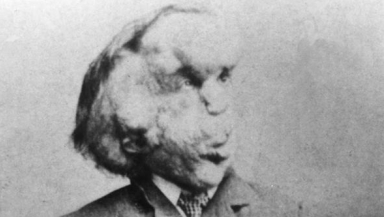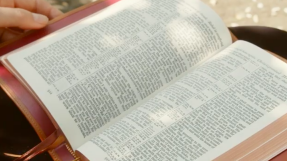"Elephant man" should be given a Christian burial, according to campaigners who are determined to see his remains removed from their glass viewing case at Queen Mary, University of London.

Joseph Merrick, better known by his derogatory appellation, died aged 27 in 1890 after a life of touring in freak shows because of unusual condition. He suffered from Proteus syndrome from the age of five which caused his bones, skin and other tissue to grow in an excessive and disjointed manner.
However campaigners have said he was a Christian and so should have a Christian burial in his hometown of Leicester. They insist that while he agreed to be marvelled at during his life, he "almost certainly" did not want his remains to be exhibited after his death.
Valeria Howkins, the granddaughter of Tom Norman who was one of Merrick's managers, said the reburial of Richard III in Leicester made her "doubly anxious" to ensure Merrick was buried with dignity.
"There was just no question when he died that he would go back to Leicester to be buried," she told the BBC.
"It's just so sad that he had his flesh stripped from his bones and has been mounted in a glass cabinet for 120 years against his will.
"He was Christian and would have expected a Christian burial."
The founder of Friends of Joseph Carey Merrick has also called for his reburial in Leicester.
"As Joseph Merrick was a devout Christian we know for a fact he would have wanted to be laid to rest," she told the BBC.
"It's an almost certainty. We know he was a devout Christian and we know he did have a strong faith."
However Queen Mary University of London have said they intend to keep his skeleton and said Merrick "expected to be preserved after his death".
A spokesman for the university said his remain were kept in a private room and could only be viewed by medical students and professionals with permission. He insisted the university was in regular communication with Merrick's descendants over the care of his remains.
"Those viewing the skeleton are expected to consider Merrick's feelings and gain experience of the considerable challenges of living with his condition. These ethical and humanitarian considerations are an invaluable part of the learning experience for health workers during their training,"he told the BBC.
The university has said the display is to "allow medical students to view and understand the physical deformities resulting from Joseph Merrick's condition".

















